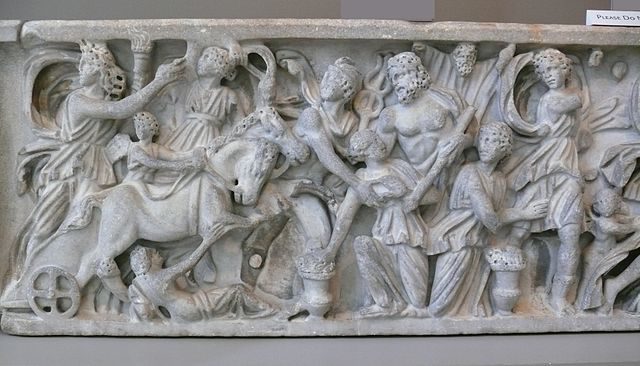A Winter Fable
While a certain other story seems to get top billing around this time of year for some mysterious reason, I would like to instead dust off an older myth. The story of Persephone is often regarded as yet another “just-so” story, not unlike the fables that tell us why leaopards have spots or that the stars in the night sky are just holes in a great dark blanket. Upon closer examination, however, we find a narrative that is much more interesting and compelling than its surface elements suggest at first read.
The Tale of Persephone
One day, the god of the underworld Hades decided to kidnap Persephone, whom he had been watching for some time, and forced her to become his wife in the underworld. Persephone’s mother, the goddess of plants and vegetation Demeter, searched day and night for her daughter and neglected her duties to the earth. Without the goddess of plant life, the food crops began to wither and die. The people of Earth cried out to Zeus, who sent Hermes to order Hades to free Persephone. Hades agreed to set her free but only after he had given her pomegranate seeds. Because she had eaten food from the underworld, Zeus decreed that she would serve a sort of parole, living with her mother for six months every year and returning to the underworld for six months. Those months she spends away from Demeter, who mourns the absence of the daughter she loves, are autumn and winter, and thus were the seasons born.

“The Rape of Proserpina” by Gian Lorenzo Bernini (source)
Crisis and Calamity
The practice of kidnapping brides, while now mostly extinct in modern industrial societies, remains a legitimate source of terror in wartorn parts of our world and was certainly a valid fear in antiquity. The story of Persephone begins with this all-too-common tragedy, this shared terror of young girls passed down to them from the matrons of these cultures which held women to be a form of property to be possessed. Young bachelorettes today are often encouraged toward a similar vigilance when they are warned not to drink too much at parties or to always carry pepper spray just in case. It is easy to see part of why this story has survived these thousands of years, using such a common thread to weave its tapestry.
What begins as a personal crisis for Persephone quickly transforms into a global catastrophe. We humans have a natural tendency to conflate our personal troubles into larger calamities. Those whom (we feel) are simply being overly dramatic are often told “It’s not the end of the world.” How satisfying it is to read a story in which a character’s personal problem actually does threaten to end the world. Indeed, if Persephone is not returned to her mother, all life on earth is extinguished. Perhaps some of the story’s adherents in antiquity like to imagine that someday their own problems might warrant divine intervention on their behalf.

“The Return of Persephone” by Frederic Leighton (source)
Hope in the Midst of Despair
How can we find hope in such a tale? Unfortunately, Persephone was denied the justice she deserved through Hades’ exploitation of a legal loophole. I can picture her now, returning to her mother every year, making the most of their time together before once more she must march the long, lonely path into the land of the dead to sit at Hades’ table and wait. Hidden within this story of corrupt injustice is a clue to how we might find actual justice in the future. Organization.
While the goddess Demeter was looking everywhere for her daughter, the people of earth were crying out because their bellies were empty and their fields were dying. It was their cries to Zeus’s ears that turned the tide in this story. You see, I purposefully withheld a portion of this story until now; Hades did not act alone, but Zeus gave him permission to kidnap Persephone once it became clear that her mother would not accept his suit.
When the people of earth cried out to Zeus, they were not only asking for food; they were laying his own corruption at his feet and demanding that he make the situation right. It seems likely that the mortals were unaware of the larger forces that led to their famine but they knew who was responsible, one way or another. They saw a problem and they responded with petitions, prayers, sacrifices, and all of the other means of getting a god’s attention. Eventually the racket was too much for Zeus to take. He had to fix his mistake, even if for no other reason than he needed sleep.
The most important lesson from the tale of Persephone is a lesson no doubt unintended by those who originally crafted the fable. Those in power cannot forever ignore the massive outcry of those whom they govern. A single voice cannot rise above the din of status quo but hundreds of thousands of voices, millions of voices shouting the same message. In times such as these, the hope of Persephone lies with us.

